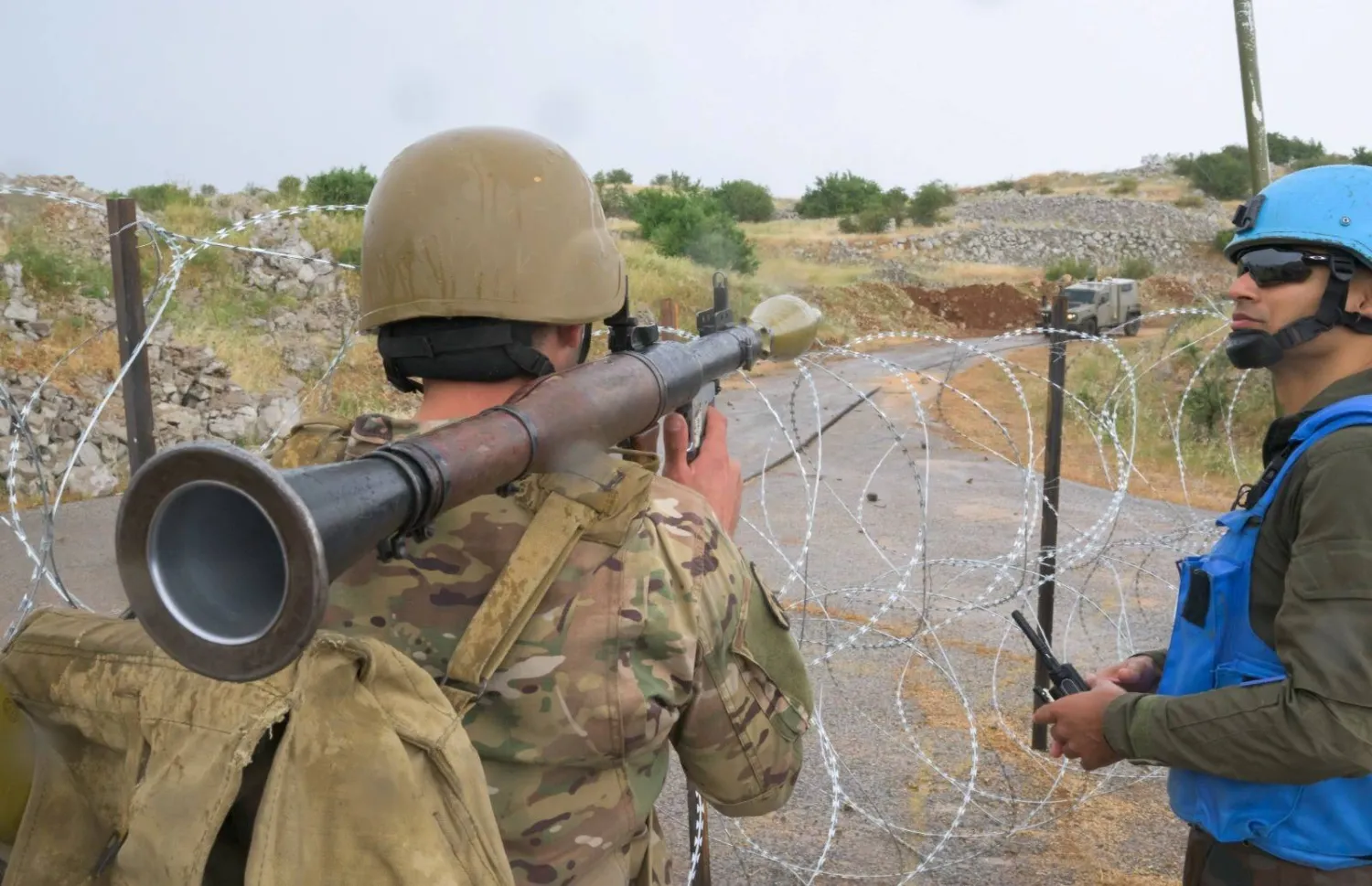The United Nations Interim Forces in Lebanon (UNIFIL) urged Lebanon and Israel to effectively use the coordination mechanisms to prevent misunderstandings and violations, and to contribute to maintaining stability in the border area.
The area witnessed tension, as members of the Lebanese army took combat positions against the Israeli forces, following an attempt by Lebanese civilians to intercept Israeli bulldozers that tried to level their lands in an overlapping border area that Lebanon says belongs to it.
On Friday, the Lebanese army announced its deployment to the border area in Kfar Shuba, in southeastern Lebanon, after the Israeli forces dispersed the demonstrators.
Israeli army spokesman, Avichay Adraee, said on his Twitter account that demonstrations erupted in the Jabal Rus area on the Lebanese border. He added that the protesters threw stones at an Israeli military force, which responded using what he called “means” to disperse the demonstrations.
“We will not allow security breaches on the border with Lebanon,” the Israeli army said in a statement.
UNIFIL spokesman Andrea Tenenti announced that the interim forces were following closely the recent events in the border village. He called for employing coordination mechanisms to diffuse the tense situation to prevent any violations.
“UNIFIL is in contact with the parties, and is striving to find solutions,” he said, calling on both sides to “exercise restraint and avoid actions that might lead to an escalation of tension along the Blue Line.”
Tensions erupted on Wednesday, when Israeli bulldozers began razing Lebanese lands in the Kfar Shuba hills, located on a border triangle between Lebanon, the Golan Heights and Israel, and approached the so-called withdrawal line, prompting Lebanese civilians to stand in front of them.
Sources said that the Israeli bulldozers were confronted inside the occupied Lebanese territories.
They added that residents of the area “removed barbed wire placed by Israel,” while “Israeli forces responded by throwing tear gas, trying to disperse the crowd.”









